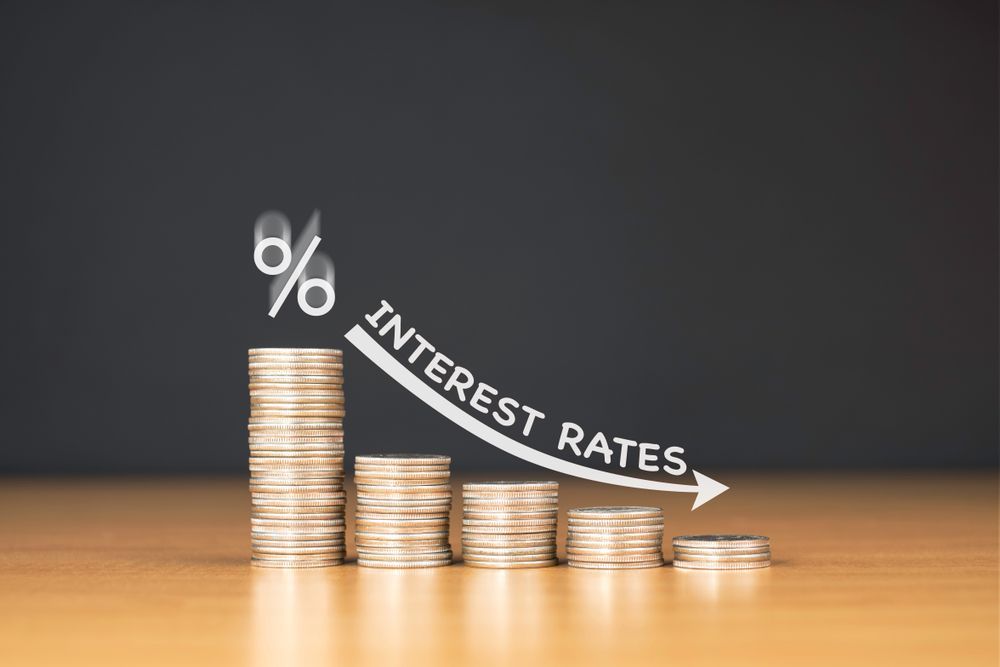The Lowest Mortgage Rates in Canada

When looking for a mortgage in Canada everyone wants to get the best mortgage rate possible. Finding the most competitive and lowest mortgage rates can make a significant difference in how much house you can afford as well as your net happiness after making the home purchase. How does a newcomer to the market find the best mortgage rates? With a variety of lenders offering different mortgage products, it can be challenging to navigate the market. In this post, we'll explore the key players in the mortgage industry—banks, monoline lenders, credit unions, and mortgage brokers—and discuss why some can offer better mortgage rates than others. We'll also show you how to find the best mortgage rates, including using online services like Frank Mortgage.
Key Players in the Mortgage Market
1. Banks
Traditional banks, such as RBC, TD, Scotiabank, BMO and CIBC, are some of the most well-known mortgage lenders in Canada. Banks typically offer a range of mortgage products, including three-year fixed rates, five-year fixed rates, and five-year variable rates. While banks are convenient to find and generally trustworthy, they often do not offer the most competitive mortgage rates upfront. Plus, anyone who has used a big bank knows that their customer service levels often leave much to be desired.
Why can’t the largest lenders in the market always offer the best mortgage rates: Banks rely on brand recognition and customer loyalty, which allows them to offer slightly higher rates, knowing that many customers may not shop around. Even customers that have been with a bank for many years may not see the best mortgage rate offer from their bank. However, if you're willing to negotiate or demonstrate that you've found a better mortgage rate elsewhere, banks may match or slightly lower their mortgage rate. This practice, while common, disrespects the customer as it requires them to do extra work to secure the best deal that should have been offered upfront.
There are also some smaller banks in the market like People’s Bank that are competitive in prime quality mortgages. Not all lend in the prime mortgage space though, instead focusing on B-mortgages.
2. Monoline Lenders
Monoline lenders, such as First National, MCAP, CMLS, Strive and Radius, are mortgage lenders that focus solely on mortgages. They don't offer other financial products like credit cards or chequing accounts, which allows them to operate with lower overhead costs.
Why They Offer Better Mortgage Rates: Monoline lenders can often provide more competitive rates than banks because they specialize in mortgages and pass on their lower operating costs to consumers. They are also often more willing to offer their best mortgage rates upfront without requiring you to find a competitive offer and then haggle for a lower mortgage rate.
3. Credit Unions
Credit unions are member-owned financial cooperatives that offer a variety of financial services, including mortgages. Some well-known credit unions in Canada include Vancity, Meridian, Servus, Duca and Coast Capital, but there are hundreds of them across the country.
Why They May Offer Better Mortgage Rates: Credit unions usually operate in a specific geographic area and can be competitive with customers within their service area. The larger credit unions have better economies of scale and can often offer very competitive mortgage rates. Smaller credit unions may not have the best mortgage rates, but they often have greater flexibility to help special situations within the communities they serve.
4. Mortgage Brokers
Mortgage brokers act as intermediaries between borrowers and lenders. They have access to a wide range of mortgage products from various lenders, including banks, monoline lenders, and credit unions. The best way to see what is available across the variety of lenders in the mortgage market is to work with a large and experienced mortgage broker that can show you the best mortgage rates offered by multiple lenders.
Why They Offer the Best Rates: Mortgage brokers can shop the mortgage market for you, securing the best mortgage rates available from their network of lenders. Because they work with multiple lenders, they can often find rates that are lower than those you might get directly from a bank. Some mortgage brokers have national operations, and some are local. The large national mortgage brokers have access to a larger number of lenders and are often offering better mortgage rates.
Comparing the Best Mortgage Rates
To give you a better understanding of how these different players stack up, let's look at some insured mortgage rates offered on August 22, 2024, as an example. The table below shows the best rates in the market on that day for three-year and five-year insured fixed-rate mortgages and five-year variable-rate mortgages.
| Three-Year Fixed Rate | Five-Year Fixed Rate | Five-Year Variable Rate | |
|---|---|---|---|
| Bank | 4.89% | 4.79% | 5.84% |
| Monoline Lender | 4.69% | 4.49% | 5.65% |
| Credit Union | 4.59% | 4.49% | 5.79% |
| Mortgage Broker | 4.54% | 4.44% | 5.55% |
As can be seen here there is a wide variance between the mortgage rates offered on this particular day. This is true all the time. The best way to see this variety is through a mortgage broker or on an online rate shopping website. You won’t know if you can qualify for these mortgage rates as you look for them, but this kind of search for mortgage rates gives you an idea of which mortgage lenders are the most competitive.
As mentioned earlier, banks often do not offer the best mortgage rates upfront. They believe their reputation plus existing customer loyalty allows them some leeway in pricing their mortgage products. This can be frustrating for borrowers who are then forced to scour the market for better mortgage rates, only to return to their bank to negotiate for a potential match.
One other thing to note is that any lender in the market may suddenly decide to offer a rate special. If you are just talking to your bank or looking online you may never see that offer. This is another reason why large and experienced mortgage brokers are beneficial. You never know on any given day who offers the lowest mortgage rates unless you have access to a mortgage broker who does.
Mortgage brokers often offer rates lower than the lenders they deal with. Mortgage brokers make their money by being paid a fee by the lender. What some mortgage brokers will do is use some of the fee to ‘buy down’ the mortgage rate or use some of the fee to provide a cash back offer that reduces the effective rate on the mortgage. This is one of the ways that mortgage brokers compete and provide value to their customers.

How to Find the Lowest Mortgage Rates
Given the range of options, how can you ensure you're getting the best mortgage rate? One of the most effective ways is to use online mortgage broker like Frank Mortgage.
We provide an online platform that uses technology and AI to help you find the most competitive mortgage rates in the market. By analyzing thousands of mortgage products from a wide network of lenders, Frank Mortgage can match you with the best rates based on your specific needs and financial situation. Whether you're looking for a three-year fixed rate, a five-year fixed rate, or a five-year variable rate, Frank Mortgage simplifies the process, saving you time and money.
There are other online services available. Some are better than others. What you should be looking for is a mortgage broker that is responsive and transparent, showing you a variety of options. One thing that you should know is that there are dozens of mortgage lenders out there that want your business. The job of a good mortgage broker is to show you who wants it the most. You deserve your best mortgage rate.
How to Qualify for the Best Mortgage Rates?
We wrote an entire blog on this subject that explains what lenders look for in the best mortgage borrowers and what you need to do to qualify. You can find the blog here - https://www.frankmortgage.com/blog/who-can-qualify-for-the-lowest-mortgage-rates
Conclusion
When searching for the most competitive mortgage rates in Canada, it’s essential to explore all your options. When you go directly to a bank or other lender you will only see what they offer. To compare mortgage rates and find the lowest mortgage rate you can qualify for it is best to work with a mortgage broker that works with a large number of mortgage lenders and has the experience to guide you through the entire process.
Many of you have loyalty to your bank. We believe that your loyalty should not cost you money. Especially on a financial commitment as large as your mortgage. Banks, while convenient, often don’t offer the best mortgage rates unless you know how to negotiate and have the patience to push them. Monoline lenders and credit unions can often provide more competitive rates. Monoline lenders don’t have branches and only work through mortgage brokers. This is another reason why the best mortgage deals are often found through mortgage brokers.
In today’s modern world and to make the process easier, consider using an online platform like Frank Mortgage to quickly and easily find the lowest rates available, ensuring you're making a smart financial decision.
With the right information and tools, you can secure a mortgage rate that fits your budget and long-term financial goals. We are here to help. Check us out online at www.frankmortgage.com or call us to talk with a mortgage expert at 1-888-850-1337.
About The Author

Don Scott
Don Scott is the founder of a challenger mortgage brokerage that is focused on improving access to mortgages. We can eliminate traditional biases and market restrictions through the use of technology to deliver a mortgage experience focused on the customer. Frankly, getting a mortgage doesn't have to be stressful.
Related Posts






